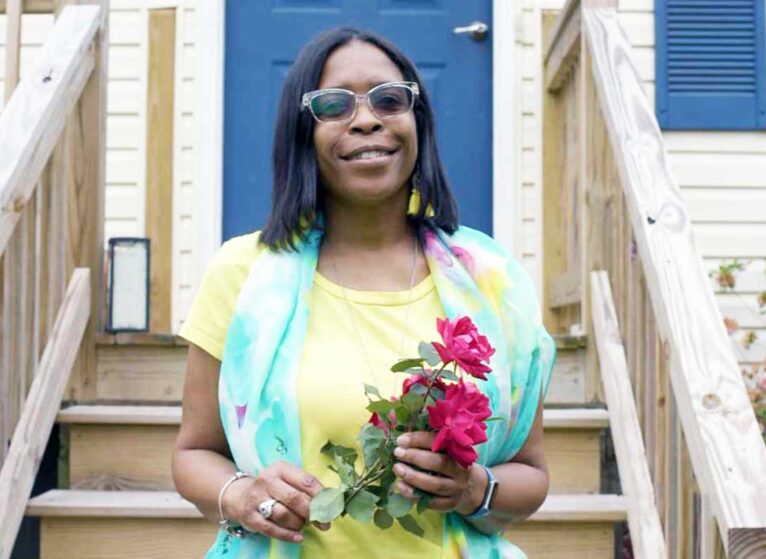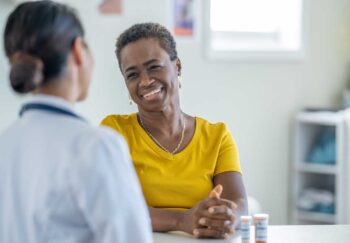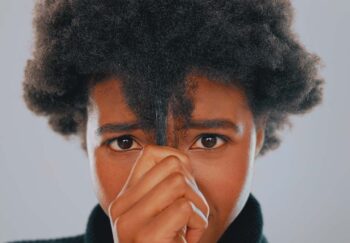Black and white women get breast cancer at about the same rate. But the similarities end there. Breast cancer in Black women is far more devastating overall: Black women are 40% more likely to die from breast cancer than white women. And Black women under 50 have double the breast cancer death rate of young white women.
As a Black woman and breast cancer survivor, Sheila Boling of Covesville, Virginia, knows these grim facts firsthand.
Her twin sister died at 35 from breast cancer. While devastated to lose her sister — whom she calls her protector — Sheila took this experience to protect her own life. And now as a volunteer, she encourages women like her to make their health a priority.
Read her 6 life-saving tips to protect yourself against breast cancer as a Black woman. And watch how she’s helping conquer cancer in the Black community.
1. Get Your Routine Mammograms
Sheila began getting regular mammograms in her late 20s. Starting breast cancer screening early is important for anyone like Sheila. Having a close family member with cancer at a young age put Sheila at higher risk for breast cancer.
In 2017, she learned from a screening mammogram that she had stage 0, a highly curable breast cancer.
“I believe that early screening is the best,” Sheila shares. “You have the chance to catch your cancer early. So I believe that everybody should get their mammograms when it's time for them.”
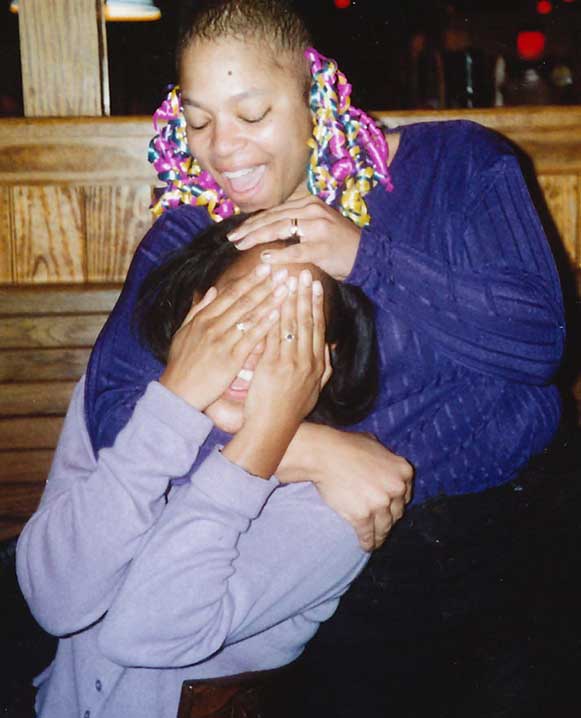
2. Seek Care Immediately If You Notice Breast Changes
She encourages women to seek care if they notice any changes to their breasts.
“African American women don’t always have the same symptoms as white women. Sometimes the symptoms are totally different,” Sheila says.
And waiting even a couple months can be dangerous. Some breast cancers that are more common in Black women spread quickly.
She says, “It’s important that when we feel bad that we get ourselves checked. Don’t delay going to the doctor or think that the pain will go away.”
3. Know Which Breast Cancers Are Common in Black Women
There are many types of breast cancer. The most common type among both Black and white women is a hormone-related cancer. It’s known as hormone receptor positive and HER2−negative (HR+/HER2−).
This type usually has a good prognosis. But studies show a significantly higher death rate in Black women compared to white women with HR+/HER2-breast cancer.
Black women are also more likely to get 2 rare cancers that are hard to treat:
- Triple negative breast cancer
- Inflammatory breast cancer (IBC)
4. Know Why Black Women Are More Likely to Die from Breast Cancer
New Breast Cancer Diagnosis?
Let's navigate this together.
Researchers are trying to find out why Black women are more likely to die from breast cancer. But it’s likely for many reasons. These include:
- Lower access to screening and treatment, often due to social determinants of health.
- Biological factors that make breast cancer tumors more aggressive.
- Beauty products like hair relaxers and dyes commonly used by Black women. Studies associate these chemicals with hormone-related cancers.
5. Watch for Breast Cancer Symptoms in Black Women
Sheila didn’t have any usual symptoms of breast cancer. But right before her 2017 breast cancer diagnosis, she had a pain she attributed to too much caffeine.
It’s important not to ignore any signs of breast cancer. Younger black women, especially, need to look out for signs of IBC. This type of breast cancer develops quickly and leads to red, swollen, and tender breasts. A classic symptom: Dimpling of the skin that looks like an orange skin.
Breast cancer can change the size, shape, or appearance of your breast. See a healthcare provider right away if you notice breast cancer signs like:
- A lump or thickened area that feels different from the rest of your breast tissue
- A nipple that looks flattened or turns inward
- Red, purple, or darker skin on your chest
- Peeling, scaling, crusting or flaking breast skin
6. Reach Out for Support & Life-Saving Breast Cancer Treatment
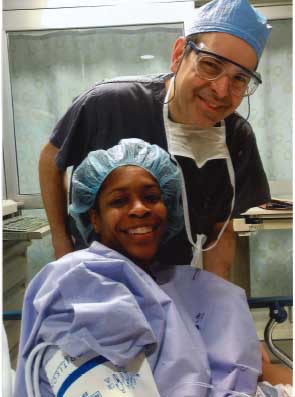
For Sheila, getting breast cancer came as a shock. But she also knew it was somewhat inevitable. And she found comfort knowing she wasn’t alone. She had support of her family, church, and fellow members of Sisters Conquering Cancer.
And at the UVA Health Breast Care Center, Sheila found an “amazing” cancer care team. Breast cancer was found in 2 spots in her breast. These spots weren’t close together. So the best strategy was to remove her entire breast (mastectomy).
David Brenin, MD, performed Sheila’s life-saving mastectomy. A plastic surgeon then oversaw her breast implant procedure.
Sheila says, “Dr. Brenin, the nurses, and all the residents in my journey were amazing. They gave me a lot of support. They gave me tips about what to do.”
Don’t Delay Your Mammogram
Breast cancer in Black women can be more aggressive.
And now Sheila pays that support forward.
For example, she shares, “While I was recovering, I remember a nurse who worked in the plastic surgery department. She told me to get cocoa butter to rub on the incision after it had healed. That was amazing. It made the scar less obvious. So now when I get a chance, if someone is in the process of that journey, I tell them to do that."
